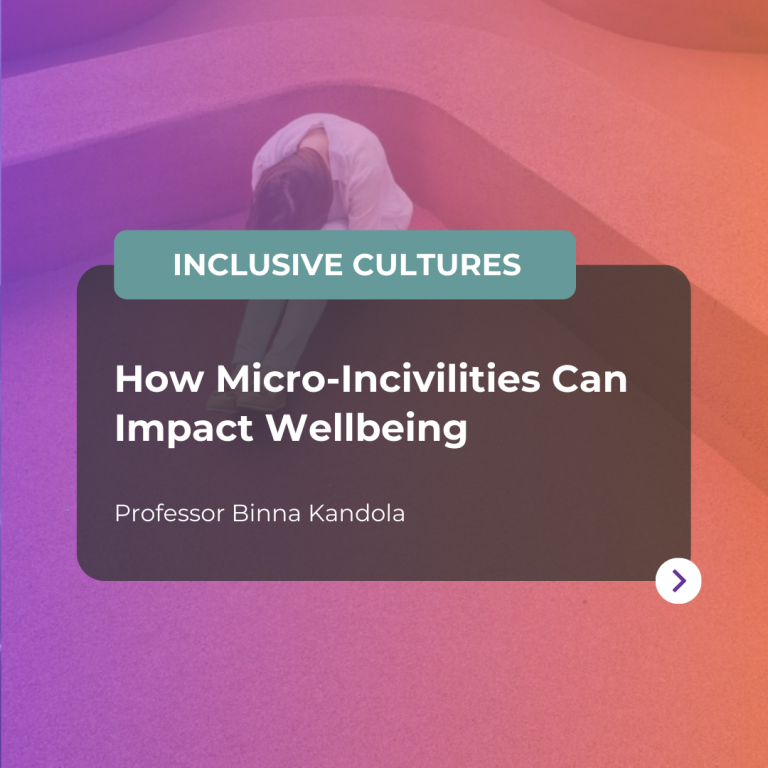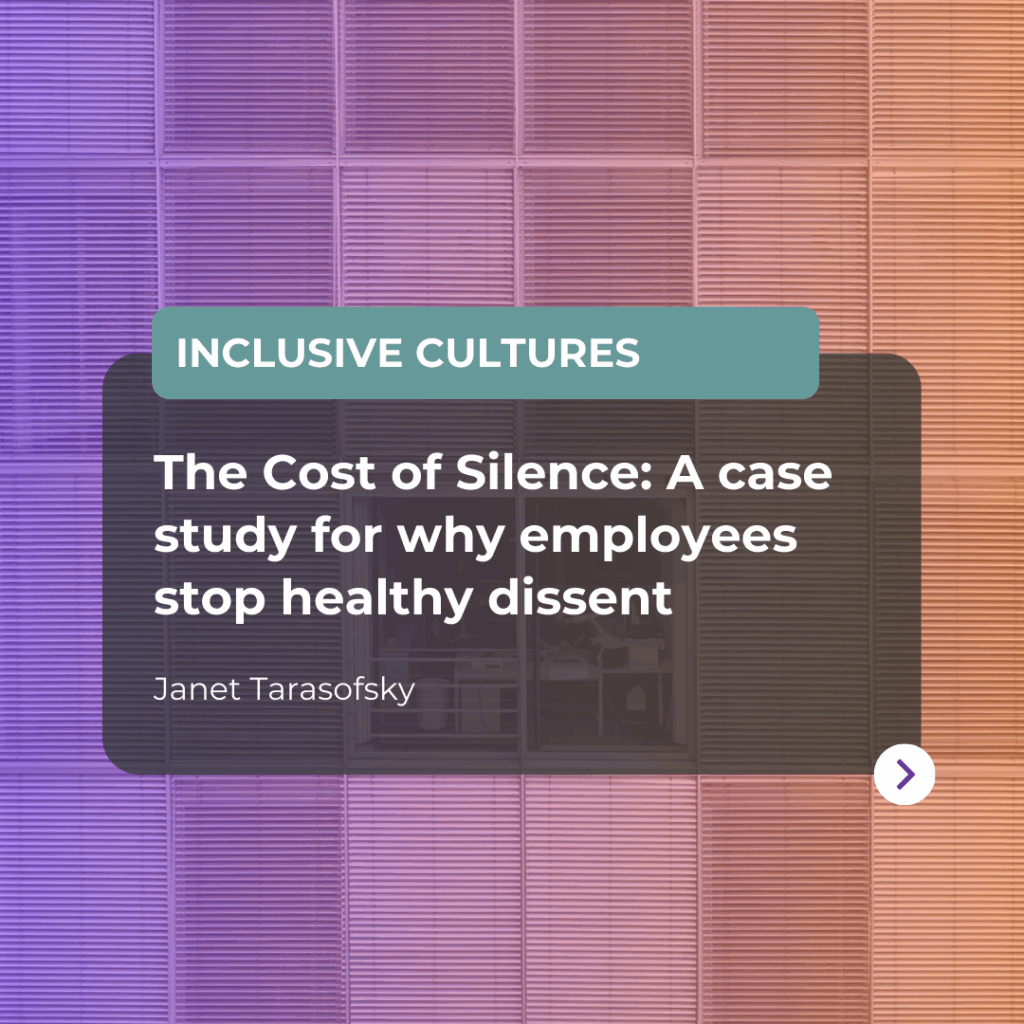Micro-incivilities, also known as micro-aggressions, are commonplace behaviours or aspects of an environment which signal, wittingly or unwittingly, that someone doesn’t belong, or they’re not welcome.
The intent to harm can be ambiguous in these instances. Discomfort about being around minorities can be displayed in any number of ways; some blatant, others more subtle. It can also lead to people over-compensating and being too friendly. Examples of micro-incivilities include:
- Being ignored
- Being talked over
- Having authority undermined
- Being constantly criticised for seemingly small issues
- Having assumptions made about your honesty
Noted Indian poet, journalist and social reformer, Benjamin Malibri, on a visit to England in 1890, described well-meaning friends and acquaintances who “overdo their part of friendliness”; saying that “the patronising Englishman does as much harm as he who disparages and decries our merits… We should be treated exactly as equals, if we deserve to be, you must not give us less than our due – equal justice and no more”.
Malibri is referring to something that psychologists have been investigating for quite some time; namely the way that racial prejudice has altered and mutated into “modern racism”, or “everyday racism”. Overt and hostile racism acts are far less likely to occur and where they do, they will be condemned. Today, racism is far more likely to be expressed in more subtle, indirect and nuanced ways.
Unconscious behaviours are still felt and understood
Whilst we can control certain aspects of our behaviour, other actions may reveal something else entirely.
For example, imagine a white doctor talking to a black patient. The doctor could believe the interaction was positive and productive. The patient, on the other hand, may feel completely the opposite. Both parties will agree a lot was said, but while the doctor would have been very aware of what they were saying, they may have sent very different messages with their body language.
This may not seem like much; they are micro-behaviours after all. But the messages conveyed are powerful. In the workplace, the impact of the micro-incivilities is long-term, and can affect psychological well-being, resilience and self-confidence.
In a piece of research on doctor/patient interactions, patients rated doctors in four dimensions:
- Interpersonal treatment
- Communication
- Trust
- Contextual knowledge or knowledge of values and beliefs etc
The higher the implicit bias of the doctor (as measured by a test of implicit or unconscious bias), the lower the scores the black patients gave them. Other research has demonstrated the same outcome; that the doctors may conspicuously hold egalitarian values, but their implicit anti-black bias was impacting their non-verbal behaviour and was detected by black patients.
The body’s triggered response
In his book, Microaggressions in everyday life, Derald Wing Sue describes the longer-term effects of micro-incivilities (or micro-aggressions) by referring to the General Adaptation Syndrome, which describes the way our body reacts to biological stressors.
Stage 1. The alarm stage
People are alerted to a potential stressor. Body temperature and blood pressure fall, while heartbeat and the secretion of corticoid hormones increase. Wing Sue states that with micro-aggressions, people behave more vigilantly, as they have to identify whether they are being personally attacked.
Stage 2 – Adaptions or resistance
Does the person accept what has just happened or challenge it? Challenging it causes conflict and tension, and potentially runs the risk of damaging relationships. Acceptance, however, means these feelings can fester for much longer. It can also lead to feelings of guilt (in not having challenged it), weakness and anxiety.
Stage 3 – Exhaustion
The effort it takes – physical and emotional – to deal with micro-incivilities can lead to burnout, depression and reduced performance. Race–related stress is one of the greatest sources of stress at work, according to Wing Sue. In other words, dealing with micro-incivilities matters if you are at all interested in having high–performing teams.
The cumulative impact on wellbeing
Overt instances of racism, although very unpleasant, can be easier to handle than racism in its more subtle forms. “Attribution ambiguity” – situations where the person is unsure of whether racism occurred, and if it did, how intentional it was – can take a great toll mentally. Anxiety over what their response should have been can stay with someone well beyond the incident itself, when everyone else involved or witnessing it will have forgotten. Overlay this onto other workplace stresses, and it’s no wonder confidence can be dented, even to the point of imposter syndrome.
Opposing micro-incivilities
Effective teams and organisations have been found to display various proactive, positive behaviours, known as organisational citizenship behaviours (OCBs). These can include helping a colleague, conscientiousness, courtesy and civic virtue. Without these, micro-incivilities can occur. Whether it’s withdrawal of help between colleagues, a lack of common courtesy or complaints about the behaviour of others, it can make for a hostile workplace environment.
When OCBs are in full force, they keep teams motivated and on track by supporting relationships and shared goals. Without these behaviours across teams, friction can occur.
All of us who work in groups – especially leaders – should actively educate ourselves on the experiences of others and try to understand how we can become inclusive. This is the foundation of more powerful and effective teams.
This article is part of our series about Racism at Work: The Danger of Indifference. If you would like to purchase a copy, go to Amazon.






